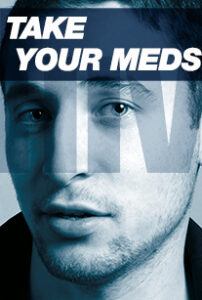Managing your HIV
As a person living with HIV, the best thing you can do is take control of your health and manage your HIV. You can do this in five ways:
- Treat early
- Take your medication
- Know your viral load
- Ask more questions
- Get more answers
Since the late 90’s, after combination HIV antiretroviral (ART) medication become available, HIV medication has become more efficient, more tolerable and even simplified with new combinations of drugs with just one single pill a day.
Evidence shows that the sooner you start treatment to control your HIV, the better it will be for your long term health outcomes. Treatment helps to improve your mental health and quality of life, and also reduces your risk of passing HIV onto your partners.
Today the lifespan for a person living with HIV, who starts treatment early, is the same as a person who does not have HIV. People who are on HIV medication report feeling healthier, their viral load (amount of virus in their body) usually stays low and CD4 cell counts stay up.
Studies show that people who start treatment soon after their HIV diagnosis have better health outcomes. Today, you can begin treatment as soon as you receive a diagnosis of HIV. It is recommended that people who are diagnosed with HIV, start treatment as soon as is practical and when you feel comfortable.
Start a conversation with your doctor to determine when you are ready to start medication that fits in with your lifestyle. There is no need to wait to start HIV treatment.
Remember to take your HIV antiretroviral medication every day!
If you forget to take your medication, missing doses can give the virus an opportunity to replicate and it can allow HIV to develop resistance to your current treatments. As a result the medication cannot work effectively to control HIV in your blood, brain and other organs of your body.
This may lead to a significant fall in your CD4 count – the good cells that help keeping your immune system strong.
If the number of CD4 cells gets very low, it increases the risk of a damaged immune system and can lead to Acquired Immune Deficiency Syndrome (AIDS) unless you start treatment immediately or as soon as possible after HIV diagnosis.
- Getting your HIV antiretroviral medication in NSW
- Accessing HIV Medication for people living with HIV without Medicare
- Click here to find a doctor to prescribe your HIV antiretroviral medication (ASHM Online Database)
3. Know your viral load
 Your ‘viral load’ (VL) is the measure of HIV virus present in your bloodstream. Knowing your VL in your blood is an important indicator of how much the treatments are suppressing HIV, how well your HIV medications are working, or whether you should consider starting or changing treatments in consultation with your doctor.
Your ‘viral load’ (VL) is the measure of HIV virus present in your bloodstream. Knowing your VL in your blood is an important indicator of how much the treatments are suppressing HIV, how well your HIV medications are working, or whether you should consider starting or changing treatments in consultation with your doctor.
If you take your HIV medication regularly it can suppress the HIV in your blood to an undetectable viral load (UVL). People with an UVL cannot pass on HIV to their sexual partners.
An ‘undetectable’ viral load (UVL) means there are less than 200 copies/ml of HIV in your blood.
You have an UVL when:
- your viral load is undetectable (less than 200 copies/ml of HIV in your blood)
- for at least six months or more, and
- you take your HIV medications as prescribed by your doctor.
Being undetectable does not mean your HIV is cured. It means, when you have an UVL, you have no risk of passing on HIV to your sexual partners. While less than 5% of people living with HIV cannot achieve an ‘undetectable’ viral load, even people in this situation will have a very low risk of passing on HIV.
When HIV is not treated with medication, the virus will replicate uninhibited in your bloodstream, where it will start to weaken your immune system. Over time, opportunistic infections will increase like thrush, tuberculosis, pneumonia and even some cancers.
Factsheet: HIV & Treatment as Prevention (TasP) – also known as U=U
4. Ask more questions
 Take control of your medication and health by asking more questions of your doctor about your HIV and about any side effects of your HIV medication.
Take control of your medication and health by asking more questions of your doctor about your HIV and about any side effects of your HIV medication.
While many people do not experience side effects – some people can. These early side effects are usually just at the beginning of treatment. Always discuss your concerns with your doctor. Treatment related side effects can usually be well managed. It is best if you and your doctor work together as a team to reach the best outcomes for you.
Talk with your doctor about your health, your experiences with HIV, and how you are feeling generally keeps you in control of your HIV and your health. Remember to tell your doctor about any other medications that you are taking.
If you have more medication related questions, you can get support from Positive Life NSW on (02) 8357 8386 or 1800 245 677 or email contact@positivelife.org.au to ask questions you feel unsure about.
5. Get more answers
Being proactive about your health puts you in control of your HIV. Your CD4 count and viral load will provide clinical markers to guide you and your doctor. If you’re unhappy with advice you receive, you can always seek a second opinion.
For more support when speaking with your doctor, contact your local Sexual Health Clinic or call Positive Life NSW on ((02) 8357 8386 or 1800 245 677 (freecall) or email contact@positivelife.org.au.
page updated: 30 August 2024








